- Home
- Haruki Murakami
Absolutely on Music: Conversations With Seiji Ozawa Page 20
Absolutely on Music: Conversations With Seiji Ozawa Read online
Page 20
MURAKAMI: So you were just as busy in Vienna as you had been in Boston?
OZAWA: Yes, very busy. But it wasn’t so stressful. Everybody was worried that I’d be working too hard, but it wasn’t that bad. I had a lot of fun. And I learned a tremendous amount. I just kept wanting to do more and more. If I hadn’t gotten sick…it was really a shame, I had so much I wanted to do.
MURAKAMI: You know, as a layman, I would have expected a place like the Vienna State Opera, just dripping with history, to be a hotbed of conspiracy and intrigue.
OZAWA [laughing]: That’s what everybody says. But it’s not like that at all. Or maybe I’m just especially unaware of such things.
MURAKAMI: You mean to say there wasn’t a lot of political maneuvering?
OZAWA: Oh, that. I try not to let myself get involved in such things. In Boston, too, I kept as far away from that stuff as I could. I don’t do it anywhere, not even in Japan. And in Vienna, it was probably a good thing that my German was so bad. Of course, it can be inconvenient when you don’t know the language, but it can be all the more convenient at times, too. So my eight years in Vienna were truly enjoyable. I could do practically any opera I wanted, and I was constantly surrounded by different productions of operas to see.
MURAKAMI: You were in opera heaven.
OZAWA: Yes, but—I hate to admit it—I almost never saw an opera from beginning to end. I used to go for the high points and leave. [Laughter.] It was terrible of me, I know.
MURAKAMI: What a waste! On the other hand, operas do tend to be very long.
OZAWA: I would go just for the high points and go back to my office in the opera house and work. Of course, I probably should have sat there for the whole thing, but I was so busy during the day that I just couldn’t spare that much time. I had rehearsals with the Vienna Philharmonic, and studio rehearsals for the next opera. A “studio rehearsal” is just a session with piano accompaniment. With three hours of one in the morning and three hours of the other in the afternoon, I was exhausted by the end of the day and didn’t have the energy for another three hours or more of a whole opera. I needed to eat, too! [Laughter.]
MURAKAMI: Well, sure, opera was originally intended for persons of leisure. A few years ago, while you were still music director, I went to Vienna and saw a whole series of operas. I’d see an opera, I’d go to a Vienna Philharmonic concert, and then to another opera, and there were some matinee performances. It was sheer bliss. Please get well and do more opera in Vienna!
In a Little Swiss Town
I had the privilege of being present at nearly all the activities of the Seiji Ozawa International Academy Switzerland from June 27 to July 6, 2011. The academy is a seminar for young string players directed by Seiji Ozawa and based in the little town of Rolle on the banks of Lake Geneva near Montreux. It is held over a ten-day period every summer, and this was its eighth year.
Outstanding string players, mostly in their twenties, are brought together from all over Europe for a retreat, during which time they receive instruction. They live and practice together in a kind of cultural center run by the town. The facilities are quite luxurious for such a small town. The center is situated by the lake in an extensive, lush green property. The buildings appear to be old, and they have a rich history. Beyond the wide-open windows, ferryboats occasionally cross the lake waters, with the flags of the countries they connect—France and Switzerland—fluttering pleasantly on each boat’s bow and stern.
Under Seiji Ozawa’s direction, such world-class string players as Pamela Frank (violin), Nobuko Imai (viola), and Sadao Harada (cello) guide the students; and Robert Mann, a truly legendary figure who played first violin with the Juilliard String Quartet for half a century, comes from America as special instructor. Of course there is no end to the number of applicants who want to participate in such an illustrious seminar, and thus a rigorous audition process is held in advance to ensure that only truly outstanding talents are admitted—the cream of Europe’s young musicians.
The string quartet is the focus for instruction. Three members of the faculty circulate from one quartet to another, listening to each rehearsal and offering advice on subtle points of tempo or tone or balance. This is not so much instruction as it is valuable advice from older professional colleagues who are not there to suggest that their young charges “do it this way,” but rather that “it might be better to do it like this, don’t you think?” As far as “instruction” is concerned, the young musicians gathered here have (probably) received more than enough. What they require is something a step above instruction. This is the shared recognition that underlies the entire seminar—it is about the comradeship of fellow musicians. Ozawa also attends from time to time and offers his own pieces of advice.
Robert Mann provides yet another level of special guidance in the form of master classes. The large room in which these classes are held is always filled to capacity. What occurs here is not so much democratic instruction as the sharing of secrets of the musical art, in concentrated form. Practically all the faculty and students gather for these events, giving their full attention to every word uttered by this great mentor of chamber music. I was allowed to attend all of the master classes, and though I know very little about stringed instruments, I found these exchanges profoundly interesting, full of valuable suggestions for the understanding and appreciation of music.
During the day, the students devote themselves to practicing their particular string quartets in the culture center, and then in the evening they walk ten minutes down the lakeshore with their instruments to an old stone building with a tower. This place is called “the Castle.” In the old days it was probably the mansion or manor house of the lord of the domain, while nowadays it is apparently preserved by the town. The rehearsals of the large ensemble pieces played by the entire student body are held in this high-ceilinged, lavishly decorated hall where the lord likely held fancy balls. Its walls are covered in portraits and, during my visit, its many windows were usually thrown open to the summer light.
The orchestra’s rehearsals are open to the citizens of Rolle. Many people show up every night to enjoy the spectacle, seated in the folding chairs that have been arranged just for them. Against the still-bright sky beyond the windows, swallows soar past each other in such numbers that, in pianissimo passages, the cries of the birds are louder than the music. After an hour or so of rehearsal, the audience sends warm applause to the musicians who have entertained them. Such appears to be the intimate tie between the academy and the people of the town. Music has taken root as a fixed part of their everyday lives.
The orchestra is conducted by Ozawa and Mann. The pieces chosen for performance this year are Mozart’s Divertimento K. 136, conducted by Ozawa, and the third movement of Beethoven’s String Quartet no. 16, conducted in a string-orchestra version by Mann. They have also readied the first movement of Tchaikovsky’s Serenade for Strings for use as an encore piece. This one is conducted by Ozawa.
—
In this way, the academy’s students are honing their musical skills from morning to night with hardly a break, literally immersed in music every day. These are all young men and women in their twenties (slightly more women than men), so although they are busy, they also manage to find time to enjoy their youth. They take their meals together, chattering throughout, and when rehearsals are finished, they head out to the bars for fun and relaxation—and, naturally enough, there seems to be a little romance in the making, too.
I was being allowed to participate as a kind of “special guest.” Maestro Ozawa told me, “You should absolutely come to Rolle and see with your own eyes what we do there. It will change the way you listen to music.” And so I had set out for Switzerland, intrigued, but not quite convinced that the experience would “change the way” I listened to music. I flew into the Geneva airport, headed for Rolle in a rental car, and attended the seminar from its second day on. There were no hotels where I could stay in Rolle (the number of hotels in such a small
town is quite limited), so I ended up staying in Nyon, another town on the lakeshore, about a fifteen-minute drive away. There were several excellent restaurants near the hotel that served fish taken directly from the lake. The town on the opposite shore was in France. Far off to the right, in sharp outline, were the snow-capped Alps.
Switzerland is a pleasant place to be in the summer. The sun can be hot during the day, but the plateau’s air is cool under the trees, refreshing breezes sweep across the lake, and you need a light jacket after sunset. Even without air conditioning, the musicians can concentrate on their rehearsals without breaking into a sweat. Each morning, after waking, I went running for an hour, jogging along the shore and cutting through a quiet wooded nature trail before returning to the hotel. That kind of sweat felt good. I sat at my desk for a while getting some work done, and then drove to Rolle, with sunflower fields and vineyards stretching into the distance on either side of the road, and not a billboard nor a convenience store nor a Starbucks anywhere in sight. I joined everyone for a buffet lunch in the courtyard at one o’clock, enjoying a healthy meal filled with fresh local vegetables.
After lunch, I circulated among the rooms listening to the various rehearsals, and in between, I chatted with students. Most of the young people were French-speaking or Eastern European, but the common language in the music world tends to be English, so we could understand each other pretty well. They were usually a little shy at first, but that didn’t last very long. All of them found it odd to have this writer wandering around where they were making music, but once I explained that I was writing a book with Seiji Ozawa, they had no trouble accepting me as a “special guest.” Some asked my opinion of the performance I had just heard. I was pleased to find that not a few of them had read some of my books.
Being there enabled me to hear a variety of valuable talks—by the regular instructors, of course (Pamela Frank, Nobuko Imai, and Sadao Harada)—but also on occasion by Robert Mann. Because this was a kind of “temporary community,” you were able to have free and frank conversations with all kinds of people once you were inside of it. I was extremely grateful for this opportunity.
Of greatest interest to me in attending this seminar was the process whereby good music is created. We are all used to the experience of being moved by good music and disappointed by not-so-good music: it’s the most natural thing in the world. But I know almost nothing about the process of making good music. I can pretty well imagine what’s involved in performing music of an individual nature—a piano sonata, for example—but I could never quite grasp what went into putting an ensemble together: what kind of rules were involved, what kind of guidelines were based on experience. These might be obvious to professional musicians, but they were not entirely clear to a general listener like me.
One of my roles was to observe, chronologically, what kind of music could be created as a result of gathering together, in one place, a number of young musicians who barely knew each other—and then giving them meticulous guidance by world-class performers. To do so, I spent as much time as I could attending rehearsals. Ozawa and the other instructors checked the performances closely against the scores, but for me, as someone who could barely read music, all I could do was sit and listen with an open mind. I had never before spent day after day like this, completely immersed in music. As a result, I can still hear the pieces I listened to then, echoing in my ears.
—
Let me list here the pieces that I heard the students rehearsing. Perhaps if I do so, the reader can grasp, to some extent, the sort of music I still have ringing in my ears:
1. Haydn: String Quartet no. 75, op. 76, no. 1
2. Smetana: String Quartet no. 1 (“From My Life”)
3. Ravel: String Quartet in F Major
4. Janáček: String Quartet no. 1 (“Kreutzer Sonata”)
5. Schubert: String Quartet no. 13 (“Rosamunde”)
6. Beethoven: String Quartet no. 6
7. Beethoven: String Quartet no. 13
As a general rule, the students rehearsed the entire work, but in the concerts that concluded the week, they performed only one movement. There was simply not enough time to perform all the works in their entirety. The instructors chose which movements would be performed. The first and second violinists changed places from movement to movement. The concerts were held in Geneva and Paris, with different movements performed in each venue and different musicians performing the first violinist’s part. Again due to time constraints, the Beethoven Thirteenth was not performed at either concert.
Another feature of the concluding concerts is that the three instructors and five outstanding students (four of whom worked on the Beethoven Thirteenth) joined together to perform the Mendelssohn String Octet in E-flat Major, which happens to be a particular favorite of mine; Mendelssohn composed it when he was only sixteen years old. The rehearsals for this particular piece were held in parallel with the quartet rehearsals.
—
On the first day I attended the seminar, I found myself growing a little nervous when I heard the students playing. Their performances sounded rough and awkward. Of course, this was only the second day since their group had begun making music together. I knew that it was unreasonable to expect polished performances under the circumstances, but still I had to wonder if they would go on to produce a concert-level performance in only one week. What I was hearing was very far from what we call “good music.” Wasn’t a week too short a time to bring this up to the level of a finished product, even for a mentor of Seiji Ozawa’s abilities? These were not seasoned professionals, after all, but students.
“Don’t worry, they’ll get better every day,” Ozawa declared with a smile, but I had my doubts. At that point, all I could hear were the imperfections, both in the string quartets and in the string orchestra. The Haydn didn’t sound like Haydn, the Schubert didn’t sound like Schubert, and the Ravel didn’t sound like Ravel. They were playing all the right notes, but they weren’t making that music.
Still, I continued to drive my somewhat underpowered Ford Focus wagon to Rolle every day. I made the rounds of the classrooms scattered throughout the property, listening intently to the young string players perform. I came to know all the movements of the seven string quartets and observed how they changed from day to day. I learned the names and faces of the students, and got to know their individual styles. Their progress seemed terribly slow at first, as if some kind of soft, invisible wall were blocking their way, and I worried that they would not be ready in time for the concert.
But then one day, in the brilliant summer light, some kind of silent spark seemed to leap among them. In both the daytime quartets and the evening ensemble, their sound suddenly began to come together. It was like a mysterious rising of the air. The performers’ breathing started subtly to match, and their instruments sent beautiful reverberations through the air. The Haydn sounded more and more like Haydn, the Schubert like Schubert, the Ravel like Ravel. Each musician was no longer simply performing his or her part in isolation: they were all listening to each other. Not bad, I thought: not bad at all. Something was definitely coming out of this.
It was, however, still not “good music” in the true sense. There were still one or two thin membrane-like things left covering the music, preventing it from directly moving into people’s hearts. I had experienced such membrane-like things in many different situations, unfortunately—in music, in writing, and in other artistic forms. Stripping off that last membrane can be a very difficult thing to do. But unless you manage to strip it off, a work of art has no—or almost no—meaning.
This was the stage at which Robert Mann joined the seminar, holding master classes in which he listened to and commented on the performances of each group, sometimes quite harshly.
For example, after he had listened to the first movement of the Ravel quartet, he said, “Thank you. That was a wonderful performance. Quite well done. But”—and here he grinned—“I didn’t like it at all.” Everyone in t
he classroom laughed, but I’m sure the performers themselves didn’t feel like laughing. I knew what he meant, though. The music they were playing still didn’t really sound like Ravel. It didn’t create true musical empathy. That was clear to me, and it must have been clear to the others in the room. Robert Mann had simply stated that fact honestly, directly, without sugar coating. It was an extremely important fact, because there was not enough time available to indulge in pointless euphemisms—not enough time for the students and not enough time for Robert Mann. In effect, he was performing the function of the bright, precise mirror of a dentist, a mirror meant not to blur and flatter but to focus directly on the affected area and bring out the problem. I had the feeling that only someone like Mann could carry this off.
Mann provided detailed guidance on the smallest matters, as if tightening all the screws of a machine. His advice was always very concrete, his intentions perfectly clear to everyone. He avoided all ambiguity, so as to make maximum use of the limited time available. The students clung desperately to every word of Mann’s rapid-fire advice. His guidance continued for more than half an hour—a very tense, even suffocating, half hour. The students must have been worn out by the end of it, but Mann—who was then ninety-two years old—must have been exhausted too. When he spoke about the music, however, Mann’s eyes were lively and youthful, not the eyes of an old man.

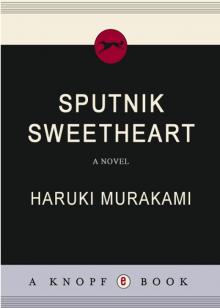 Sputnik Sweetheart
Sputnik Sweetheart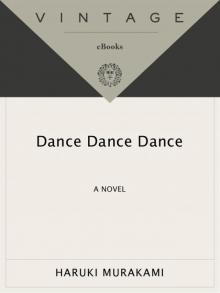 Dance Dance Dance
Dance Dance Dance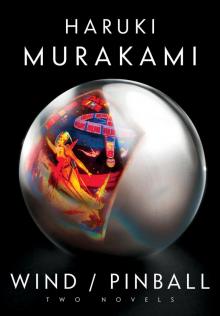 The Wind (1) and Up Bird Chronicle (2)
The Wind (1) and Up Bird Chronicle (2) Blind Willow, Sleeping Woman
Blind Willow, Sleeping Woman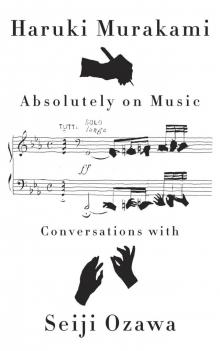 Absolutely on Music: Conversations With Seiji Ozawa
Absolutely on Music: Conversations With Seiji Ozawa Norwegian Wood
Norwegian Wood South of the Border, West of the Sun
South of the Border, West of the Sun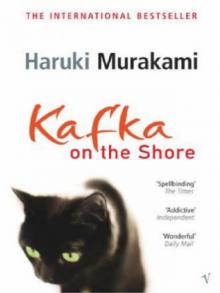 Kafka on the Shore
Kafka on the Shore Men Without Women
Men Without Women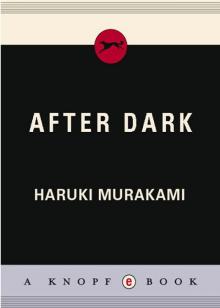 After Dark
After Dark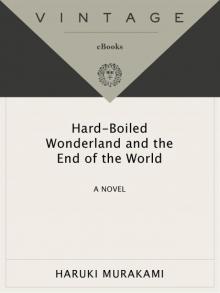 Hard-Boiled Wonderland and the End of the World
Hard-Boiled Wonderland and the End of the World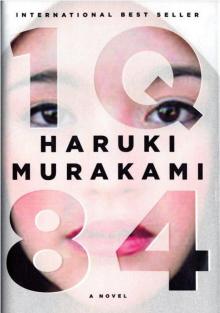 1q84
1q84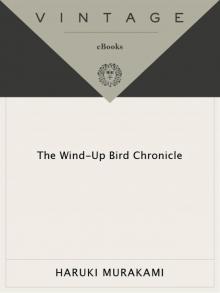 The Wind-Up Bird Chronicle
The Wind-Up Bird Chronicle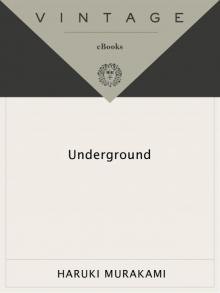 Underground: The Tokyo Gas Attack and the Japanese Psyche
Underground: The Tokyo Gas Attack and the Japanese Psyche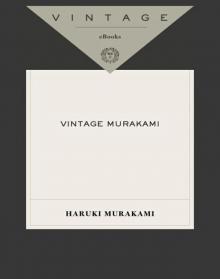 Vintage Murakami
Vintage Murakami The Elephant Vanishes: Stories
The Elephant Vanishes: Stories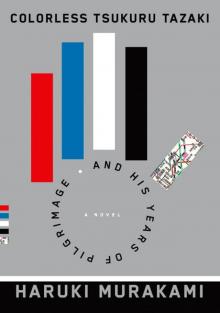 Colorless Tsukuru Tazaki and His Years of Pilgrimage
Colorless Tsukuru Tazaki and His Years of Pilgrimage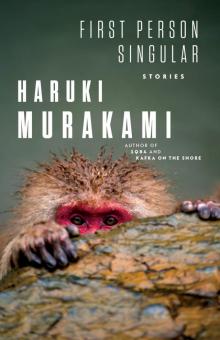 First Person Singular
First Person Singular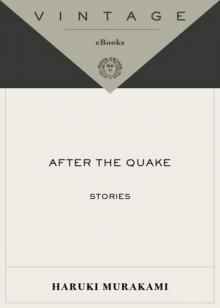 After the Quake
After the Quake A Wild Sheep Chase
A Wild Sheep Chase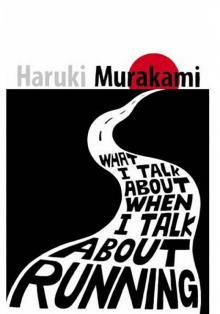 What I Talk About When I Talk About Running
What I Talk About When I Talk About Running Birthday Girl
Birthday Girl The Elephant Vanishes
The Elephant Vanishes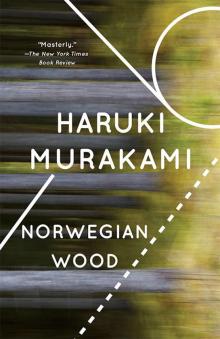 Norwegian Wood (Vintage International)
Norwegian Wood (Vintage International)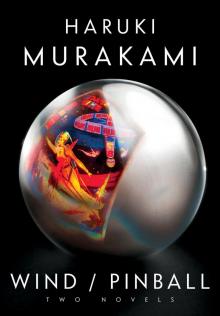 Wind/Pinball
Wind/Pinball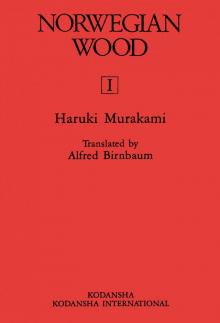 Norwegian Wood Vol 1.
Norwegian Wood Vol 1. Underground
Underground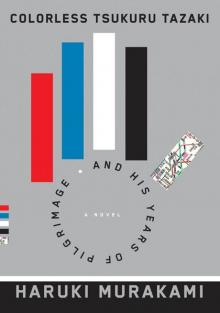 Colorless Tsukuru Tazaki and His Years of Pilgrimage: A novel
Colorless Tsukuru Tazaki and His Years of Pilgrimage: A novel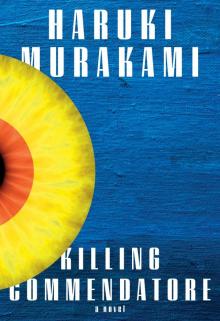 Killing Commendatore
Killing Commendatore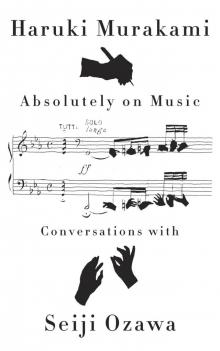 Absolutely on Music
Absolutely on Music